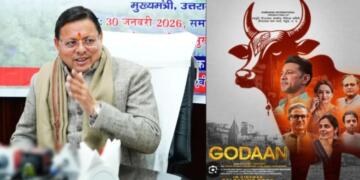Chandrasekhara Venkata Raman, the greatest physicists of India and the world, is known for his contribution to quantum physics. A Nobel Prize awardee and a Bharat Ratna recipient, CV Raman’s worldview corrects various stereotypes. Well, these instances are well-known, but little do people know about him is that the scientist has also been a firm believer of Dharma.
CV Raman – the Man of Science
Born on November 7, 1888, Raman’s life is full of remarkable achievements that include the discovery of the Raman Effect, various experiments, and awards. Raman joined Presidency College in Madras (now Chennai) in 1902 where his father taught mathematics and physics. At the age of 18, his first scientific paper on “Unsymmetrical diffraction bands due to a rectangular aperture” was published in the British journal Philosophical Magazine in 1906.
- In 1929’s Royal Society’s Presidential address, Raman was conferred with the Knight Bachelor award and was also honoured with the Fellow of the Royal Society title.
- Another historic moment was created when he was appointed as the first Indian director of the Indian Institute of Science (IIS) in 1933.
- Raman was also inducted as the first National Professor of India by Independent India in 1947.
- The Nobel Prize Winner also won the highest civilian award of India, that is, Bharat Ratna, in 1954.
- Raman was also the founder of the Indian Journal of Physics. He also founded the Indian Academy of Sciences in 1933 and also established the Raman Research Institute in 1948.
CV Raman – a flag bearer of Dharma
CV Raman, who merely expressed his faith towards religion, was a hard-core agnostic. Influenced by the philosophies of Herbert Spencer, Charles Bradlaugh, and Robert G. Ingersoll led him to become even more agnostic. Sticking to Hindu traditional rituals, he used to wear Traditional pagri (Indian turban) with a tuft underneath and an upanayana (Hindu sacred thread) that eventually turned out to be his signature attire. Though he was not bound to wear turbans as it is not customary in South Indian culture, he, explaining his habit, had said, “Oh, if I did not wear one, my head will swell. You all praise me so much and I need a turban to contain my ego.”
When a conversation with Mohandas Karam Chand Gandhi and Gilbert Rahm, a German zoologist, turned to religion, Raman had asserted, “I shall answer your [Rahm’s] question. If there is a God we must look for him in the Universe. If he is not there, he is not worth looking for… The growing discoveries in the science of astronomy and physics seem to be further and further revelations of God.”
Well, witnessing such statements, one can easily depict his faith towards Dharma. Despite being a scientist who is assumed to believe in scientific theories and practical only, CV Raman turned out to be a flag bearer of Dharma and the so-called liberal elites need to learn from him.




























